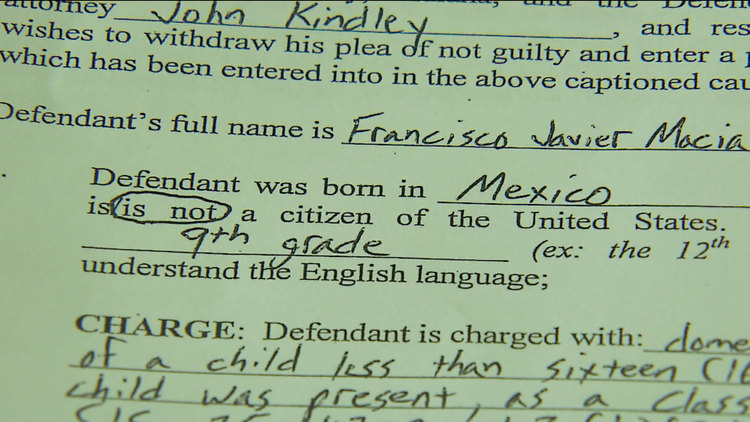Via Doug Berman, U.S. District Judge James Zagel said today, in sentencing former Illinois Governor Rod Blagojevich to 14 years in prison, that the damage caused by Blagojevich
is not measured in the value of money and property. The harm is the erosion of the public trust in government; [people’s] confidence in and trust in government.
Sounds to me like Blago deserves a medal along with a prison sentence. The judge’s 14 year sentence itself justifies “erosion of the public trust in government.” See (also via Doug Berman) this op-ed, by the the director of the Federal Criminal Justice Clinic at the University of Chicago Law School, published in the Chicago Tribune prior to Blago’s sentencing:
Rod Blagojevich is a lucky man. He is lucky that the U.S. attorney’s office is asking U.S. District Judge James Zagel to send him to prison for only 15 to 20 years. He is lucky that the prosecution is not asking for him to do 30 years to life in prison, which is the amount of time called for by federal sentencing guidelines — the laws that set punishment in federal cases based on the severity of the crime.
Blagojevich is especially lucky that he is not my recent client, a drug-addicted man who grew up on the South Side and pleaded guilty to selling two ounces of drugs to a government informant for $200. I represented this man, and the same U.S. attorney’s office asked Zagel to follow the sentencing guidelines strictly and send him to prison for up to 27 years. Luckily for Blagojevich, the prosecutors filed a motion asking for a far lighter sentence for the former governor who, they themselves contend, deeply damaged the integrity of the political system by trying to hand over a U.S. Senate seat in exchange for $1.5 million in donations and then blatantly lied about his conduct on the stand.
But hell, for all I know Blago is innocent of the charges for which he’s been convicted. Sure, Blago, after boisterously proclaiming his innocence in the media for all that time until he was convicted, now admits “I’m guilty,” and the judge in determining his sentence dutifully gave him (presumably years of) credit for “accepting responsibility,” but this kind of tidily coerced “confession” means nothing. And even his “confession” itself further erodes “public trust in government,” by underscoring the essential nature of politics a/k/a law-making:
There is a line between routine politics, horse trading and campaign politics… I thought they were permissible and I was mistaken.
Coincidentally, the Chief Justice of the Indiana Supreme Court announced his retirement today, and the Indiana Attorney General had this to say:
I was privileged to have been present at the investiture of Chief Justice Shepard in 1985 and he has fulfilled his pledge to transform the Indiana Supreme Court into one that is nationally respected and whose legal insight and analysis serves to lead the development of the law.
But Harvard law professor Alan Dershowitz is “nationally respected,” and wrote back in 2003:
I have argued cases all over the world, and I have never encountered a legal system as result-oriented as that of Indiana or a chief justice as self-protective as Chief Justice Randall Shepard . . . .
As for the Court’s “legal insight and analysis,” compare the intellectual integrity of its less than 2 pages of “analysis” in the case of Tyrus Coleman with the intellectual integrity of the analysis in the court of appeals’ decision it overturned, thereby condemning to prison for decades an innocent man whom the court of appeals would have freed on Double Jeopardy grounds. Does it not drastically erode “public trust in government” to thus deprive a man of his freedom, and his children of their father, with such meager explanation, on what seems like a whim or worse?
IOZ got some grief from a commenter the other day for espousing anarchy while refusing to set forth his personal vision for a just society, of how he thinks things should be and how he thinks things should work. I myself have set forth my own vision multiple times on this blog, and did so again in a comment on IOZ’s post:
I don’t think a “grandiose plan to remake society” is called for. Get rid of the legislators; get rid of the judges (but not the jurors); get rid of the federal, state, and county governments (except, perhaps, as confederations of even smaller governments); and you’ll still have Law. You’ll still have what Nietzsche called the “song of the necessary, the single and irreplaceable melody.”
Another commenter made a good point in response to the commenter who was giving IOZ a hard time:
what you’re clutching at seems to be this: how does one utter the words “power be properly asserted by the proverbial people” or “heedless, half-cocked campaigns” or “fraudulent national accountancy” or “monstrosity” without having some sort of critical frame (which critical frame is itself a system)?
See, I don’t harbor any illusions that civilization as we know it will ever be “reformed” into anything remotely resembling a just society. My vision for a just society is principally just a “critical frame” for condemning civilization as we know it. Civilization as we know it will break before it will be “reformed,” before it becomes just. By eroding “public trust in government,” by recognizing the State as Our Enemy and as the coldest of all cold monsters, we hasten the arrival of that impending apocalypse.
So again, Gov. Blagojevich: Thank you for your service.





















